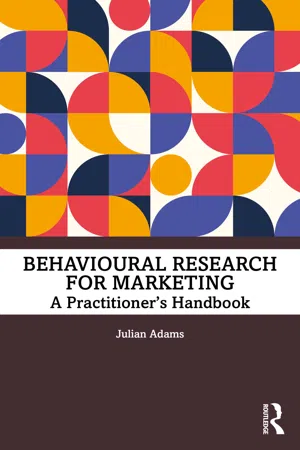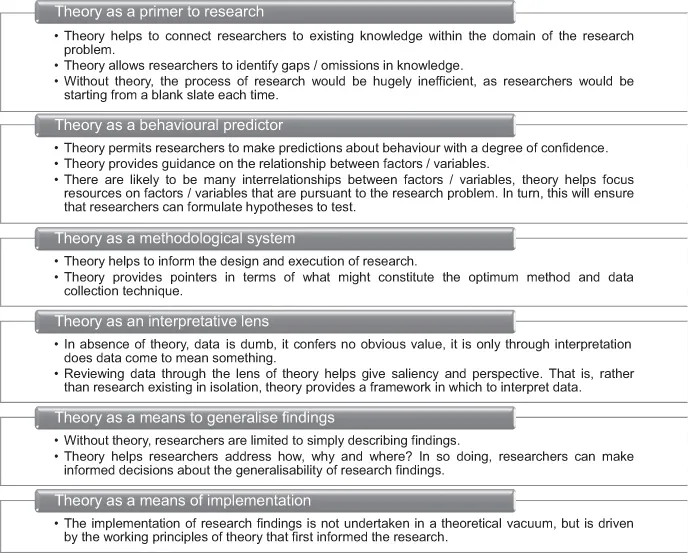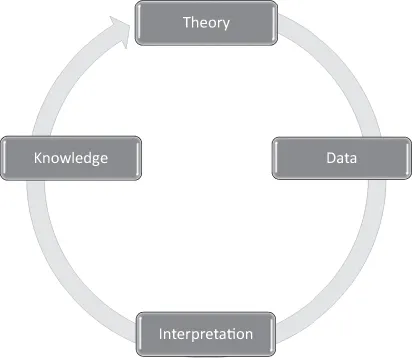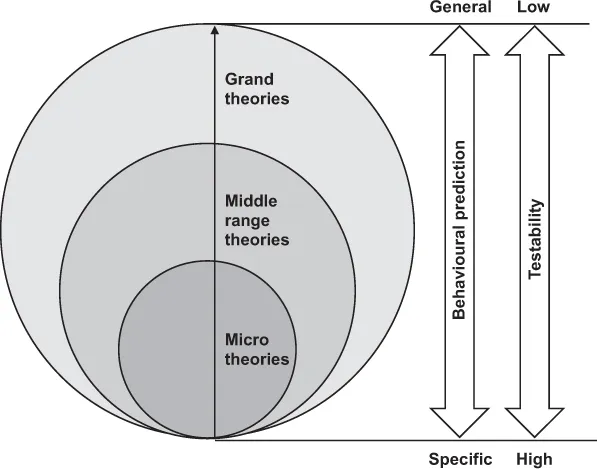
Behavioural Research for Marketing
A Practitioner's Handbook
Julian Adams
- 202 Seiten
- English
- ePUB (handyfreundlich)
- Über iOS und Android verfügbar
Behavioural Research for Marketing
A Practitioner's Handbook
Julian Adams
Über dieses Buch
This book, the first of its kind, provides market researchers and marketeers with the tools to better understand human behaviour by drawing upon social science theory from different schools of thought, including sociology, psychology and behavioural economics. It has practical examples throughout to help illustrate how to operationalise theory in market research and to underpin the way we understand how people think, behave, decide and make choices. Each theory is explained in accessible terms to ensure that the content is relevant and useful to commercial market researchers.
By considering different theoretical models of human behaviour from the outset, this book will open new avenues of investigation, help researchers to develop more dynamic and challenging hypotheses to test during the research process, and ultimately result in more insightful outcomes. The book brings together theories that look at how society is shaped and formed, and how this impacts on the individual, along with theories that focus on the mind and behaviour of the individual; these perspectives are equally important in market research but not usually considered within the same text. This book is not limited to theory alone; in each chapter, illustrative examples are used to help demonstrate how theory can be applied to real-world market research projects. Additionally, throughout there are helpful suggestions in terms of question content to help operationalise theory.
This book will appeal to those that have recently entered the field of market research and are interested in the theoretical underpinnings of human behaviour, undergraduates and post-graduates that are studying marketing, business studies or social science, where a core component of the course requirement is market research, and finally those that are users of market research data and want a working knowledge of key theories of human behaviour.
Häufig gestellte Fragen
Information
Chapter 1 Introducing theory
CHAPTER OVERVIEW
- 1.1 We begin by considering the role of theory and how theory informs research from connecting researchers to a body of knowledge through to the implementation of findings.
- 1.2 Next, how philosophical perspectives shape the nature of theory is discussed.
- 1.3 In the final part of this opening chapter, the overall aim and content of the book are presented.
Introduction
1.1 Applying theory as a research decision tool
1.1.1 Defining theory

1.1.2 How theory evolves over time

1.1.3 Connecting researchers to theory
1.1.4 Determining theory prediction and testability

1.1.4.1 Defining grand theories
1.1.4.2 Defining middle-range theories
1.1.4.3 Defining micro theories
1.2 How research philosophies inform theory
1.2.1 Ontological and epistemology assumptions
- ■ Ontology refers to assumptions we make about how we experience reality in the social world.
- ■ Epistemology refers to assumptions we make about how we create knowledge about the social world.
1.2.2 Methodological considerations
1.2.3 Research paradigms/frameworks
- ■ Objectivism.
- ■ Critical realism.
- ■ Subjectivism.
- ■ Pragmatism.
| Paradigms/Research framework | Objectivism | Critical realism | Subjectivism | Pragmatism |
|---|---|---|---|---|
 |
|
|
|
|
 |
|
|
|
|
Inhaltsverzeichnis
- Cover
- Half Title
- Title Page
- Copyright Page
- Table of Contents
- Preface
- Acknowledgements
- 1 Introducing theory
- 2 How social influence creates and sustains behaviour
- 3 How personality governs behavioural tendencies
- 4 How motivational forces drive behaviour
- 5 How judgements influence behaviour
- 6 How to select theory
- Index